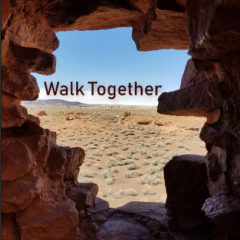Some helps for preachers and those who hear them
“28 We proclaim Him, admonishing every man and teaching every man with all wisdom, so that we may present every man complete in Christ.
29 For this purpose also I labor, striving according to His power, which mightily works within me.” – Colossians 1:28-29 (NASB)
The word “striving”* in the above letter captures the gnawing reminder that Sunday’s coming! What is the message from God? With all that is in the Bible, the problem is not running out of something to say; it is running on saying something. When I was called to my first church, we held worship services Sunday morning and Sunday night, with prayer meeting on Wednesdays. Throw in Bible studies and church training, and I learned the agony of having something to say versus having to say something. You can’t stand in the pulpit and say, “I’ve been so busy dealing with church property issues, I haven’t thought about God much. So, let’s skip right to the closing hymn and call it good!”
The next three blogs on Preach: Crawl, Walk, Run! is not about how to preach, which is often a personal subject wrapped up in ego. Rather this is a pool of the best resources on 1. how to read the Bible in a worship service, 2. discover your thin-place where God speaks with you in your sermon preparation, 3. tools to prepare you for preaching and 4. launch ideas for your sermon.
The outcome of your sermon and results of your preaching I leave in God’s hands. If this blog has lessened the agony of the process, then I have succeeded.

One of the benefits of having served as full-time pastor in four churches and having attended church as a full-time insurance adjuster is that I have experienced the view from the pew through the eyes of someone who battled through the workweek tied to a computer. The sense of relief and peace just to make it to Sunday. My own fatigue of the work world has given me the eyes of the layperson who makes a commitment of time to attend church. Our appreciation of that time begins with the agony of preaching.
While attending Southwestern Baptist Sunday in Ft. Worth, Texas, we attended South Wayside Baptist Church a few minutes from campus and filled with fellow students. There I began to capture the reality of preaching. Some of the elderly ladies, when the clock struck noon, jingled their car keys as an audible warning to the preacher that he was cutting into their cafeteria time! This particular preacher, by the way, had a nasty habit of considering prayer time as opportunity to correct sagging suit pants and other fashion problems while “all eyes are closed.”
Now that I am part of that cafeteria crowd, I understand the purpose of keys. If you are a layperson in your church, thinking that you should break out the truck keys, then give your pastor a link to this blog. Who knows – you might find some extra cafeteria time!
When I started my first pastorate in 1984, you felt you earned your keep by delivering a 35 minute sermon, with three points and an altar call in which one person walked down the isle. The next day at Piccadilly Cafeteria the minister’s group would ask one other, “Did you have any movement?”
The question, “Did you have any movement?” referred to the practice of church members physically walking down the isle at the end of the service to make a commitment of faith. The question “Did you have any movement?” today speaks more to moving the minds and hearts of believers. What is a symphony without movement?
Make it Meaningful. Make it moving. Move on! Try one moving point shared in ten minutes …without notes.
Let’s crawl, walk and run together!
“Lord, Fill my head with useful stuff, and stop me when I’ve said enough!”
Unknown
*”Striving”- Greek ἀγωνίζομαι – agonizomai – transliterated English “agony”- to strive earnestly, to combat in public games
